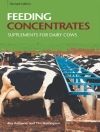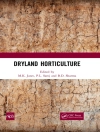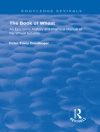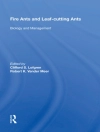The emergence of nanotechnology and the development of new nanodevices and nanomaterials have opened up exciting opportunities for novel applications in agriculture and biotechnology. Nanotechnology has the potential to modernize agricultural research and practice, but although it has gained momentum in the agriculture sector over last decade, there are still knowledge gaps between scientific communities.
This book presents a comprehensive overview of current developments in nanotechnology-based sustainable agriculture. Focusing on various aspects of nanotechnology in different sectors of agriculture, such as crop production, soil fertility management and crop improvement, it offers insights into the current trends and future prospects of nanotechnology, along with the benefits and risks and their impact on agricultural ecosystems. It also highlights the use of nanotechnology to reduce agrochemical usage, to increase nutrient uptake efficiency and to improve water and nutrient management, and the use of nano-biosensors to manage plant diseases. The book is a valuable reference resource for scientists, policymakers, students and researchers who are engaged in developing strategies to cope with current agricultural challenges.
Daftar Isi
Chapter 1: Nanobiotechnology for Agricultural Productivity, Food Security and Environmental Sustainability.- Chapter 2: Nano Fertilizers: A Recent Approach in Crop Production.- Chapter 3: Nanofertilizers: Smart Delivery of Plant Nutrients.- Chapter 4: Nanoelements: An Agricultural Paradigm for Targeted Plant Nutrition Therapeutic Approach.- Chapter 5: Nanoparticles for the Improved Crop Production.- Chapter 6: Nanobiofertilizers in Crop Production.- Chapter 7: Mechanism of Action of Nanopesticide Derived from Microorganism for the Alleviation of Abiotic and Biotic Stress Affecting Crop Productivity.- Chapter 8: Future of Nanofertilizer.- Chapter 9: Nanotechnology: A Novel Strategy Against Plant Pathogens.- Chapter 10: Antimicrobial Activities of Nanoparticles.- Chapter 11: Methods and Mechanisms Involved in Antimicrobially Useful Nanoparticles with Agricultural Promises.- Chapter 12: Nanoparticles in Pest Incidences and Plant Disease Control.- Chapter 13: Application of Nanoengineered Metabolites from Beneficial and Eco-friendly Microorganisms as a Biological Control Agents for Plant Pests and Pathogens.- Chapter 14: Nanopesticides for the Management of Insect Pests of Stored Grains.- Chapter 15: Nanotechnology: A Promising Alternative for the Control of Postharvest Pathogens in Fruits.
Tentang Penulis
Dr Deepak Panpatte
Department of Agricultural Microbiology
Anand Agricultural University
Dr. Deepak G. Panpatte has been working as a research scholar for the past 7 years. His research interests include agriculturally beneficial microorganisms, such as biofertilizers, biopesticides and biodegraders. He has also pioneered the development of fortified biocontrol bacterial consortiums with phyto-extracts for the management of phytopathogenic nematodes and fungi. He has received 5 international conference awards for his research, and the Rastiya Gaurav Award for outstanding contributions to agriculture. He has published 14 research papers, 3 books & 9 book chapters with Springer publishing house, 1 practical manual, 26 popular articles and 2 editorials. He is also an editorial board member of various respected national and international journals.
Dr. Yogeshvari K. Jhala
Department of Agricultural Microbiology Anand Agricultural University
Dr. Yogeshvari K. Jhala is an Assistant Professor with 10 years of teaching and research experience. Her field of interest is agriculturally beneficial microorganism such as biofertilizers, biopesticides and biodegraders. She was the first researcher worldwide to report 5 unique strains of methanotrophic bacteria. She has received the All India Best Research Award and Young Faculty Award for her outstanding research on methanotrophic bacteria. Her publications include 17 research papers, 3 Books, 6 book chapters, 2 teaching manuals, 18 popular articles and 2 editorials.












